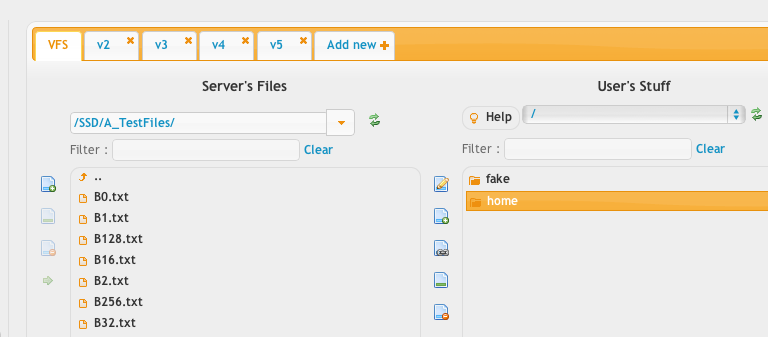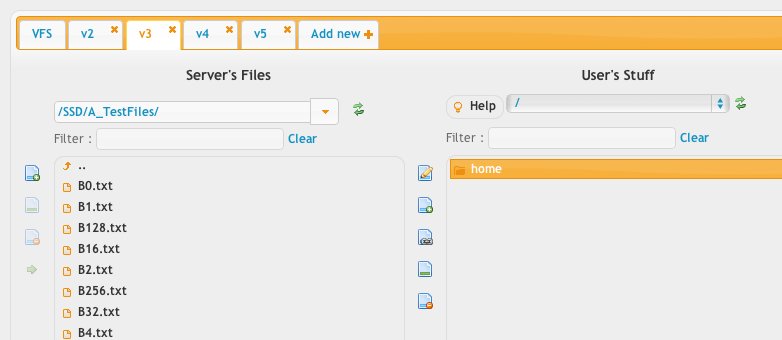The VFS can handle multiple configurations merged together. This can be used to superimpose a folder or file into another directory listing.
So if you had a folder called 'home' in the VFS, then made another VFS config at the top, you can use the second one to super impose other items into the listing. You make a fake folder called 'home', double click on it, then drag a real item into it. Now when the user lists the 'home' folder, they will see its contents, plus the fake folder's contents all merged together.

This can be take a step further too for a very advanced scenario. You can use the second VFS configuration to merge another home folder together with it from a remote server. So you have a local folder named 'home' and a remote folder named 'home'... and they are merged together. When a file is uploaded, it's written to both locations simultaneously. When a file is deleted, its deleted from both, renamed from both, etc. You have replication through internet protocols. If data can't be written to both, it can't be written to one. So the data is always in both places, or the client gets an error.

(This extra VFS info is stored in the reserved User Connection Group called 'extra_vfs'.)
Add new attachment
List of attachments
| Kind | Attachment Name | Size | Version | Date Modified | Author | Change note |
|---|---|---|---|---|---|---|
png |
multi_vfs1.png | 38.3 kB | 1 | 05-Dec-2023 05:32 | Ben Spink | |
png |
multi_vfs2.png | 38.5 kB | 1 | 05-Dec-2023 05:32 | Ben Spink |
